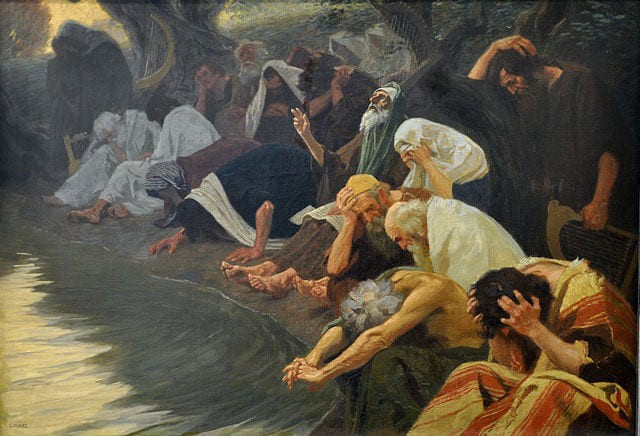Watch
Events
Articles
Market
More
Fasting days
I was just refreshing my memory on the Day of Atonement and read Zechariah 8:19 “Thus saith the Lord of hosts: ‘The fast of the fourth month, and the fast of the fifth, and the fast of the seventh, and the fast of the tenth, shall be to the house of Judah joy and gladness and cheerful feasts. Therefore love the truth and peace.’
I assume that the fast of the 7th month is the Day of Atonement, but what are the other fast days which are being referred do?
#fasting #atonement




Ovadyah ben Yisrael
• The 1st annual fast is that of the 10th month, Asara B'teveth (the Tenth of Teveth), which commemorates and mourns the beginning of the siege of Jerusalem in the 6th century BCE.
• The 2nd annual fast is that of the 4th month, called Tzom Tammuz (the Fast of Tammuz), which commemorates and mourns breaching of the Jerusalem city wall on the 17th of that month by Babylon in 586 BCE.
• The 3rd annual fast is that of the 5th month, called Tisha B’av (the 9th of Av), which commemorates and mourns the destruction of the Temple in 586 BCE.
• The 4th annual fast is that of the third day of the 7th month, called Tzom Gedaliah (the Fast of Gedaliah), which commemorates and mourns the assassination of Gedaliah, the Kohein Hagadol (High Priest) at Jerusalem after the destruction of the Temple.
All of the four fasts in Zecharyah chapter 8 are about the destruction of the Temple and mourning its loss. According to prophecy, in the coming Kingdom of YHWH the recreation of the Temple will, cause these days to become times of rejoicing over its restoration instead of mourning its loss. That is because of its central importance to YHWH and His people.
Those who do not hold these fasts and the Temple as important, and do not mourn the destruction of things which are dear to YHWH, do not have the same priorities as He does and therefore do not truly know Him.
I often wonder - what right should those who disdain these fasts now, and who do not mourn the loss of YHWH’s meeting-place with us in this life, have to join in celebrating its restoration with Him and His people in His Kingdom of the future? If they do not appreciate its loss, how can they appreciate its restoration? But YHWH is merciful – He knows.
Delete Comment
Are you sure that you want to delete this comment ?
Ovadyah ben Yisrael
You also “hit the nail on the head” by saying, “I know that I personally came to Torah because I had to reject most of my church doctrines and now continue to so scrutinize every doctrine that comes my way that I might be over analytical.” Most of us came to Torah observance by first learning of the error and lawlessness in our former religions and seeking to remove them from our newfound faith. That is commendable. However, many of us tend to get stuck in that negative mode of removal, and that can be a hindrance to ultimately entering into a positive mode of adding into our lives lawful and lovely acts and thoughts which replace the old and erroneous ones. We empty the cup of old poisons and then, fearful and traumatized by worry that we might repeat or perpetuate error, keep trying to empty it - rather than focusing on refilling it with that which is healthy and medicinal. This is understandable, but it can also cause problems in the development of a new and complete religion and faith, if taken to unnecessary extreme.
Sure, we should always make clear distinction between and be mindful of the difference between YHWH’s commands and man-made traditions, making sure that the latter never contradicts or interferes with the former. However, commandments and traditions are not necessarily mutually exclusive, and we should be careful not to teach that they are. Everyone has traditions, even if one’s tradition is to have no tradition at all. Yeshua observed many, keeping and teaching those which lawfully enhanced The Way of YHWH, and discarding those which opposed it. We should do the same.
Delete Comment
Are you sure that you want to delete this comment ?